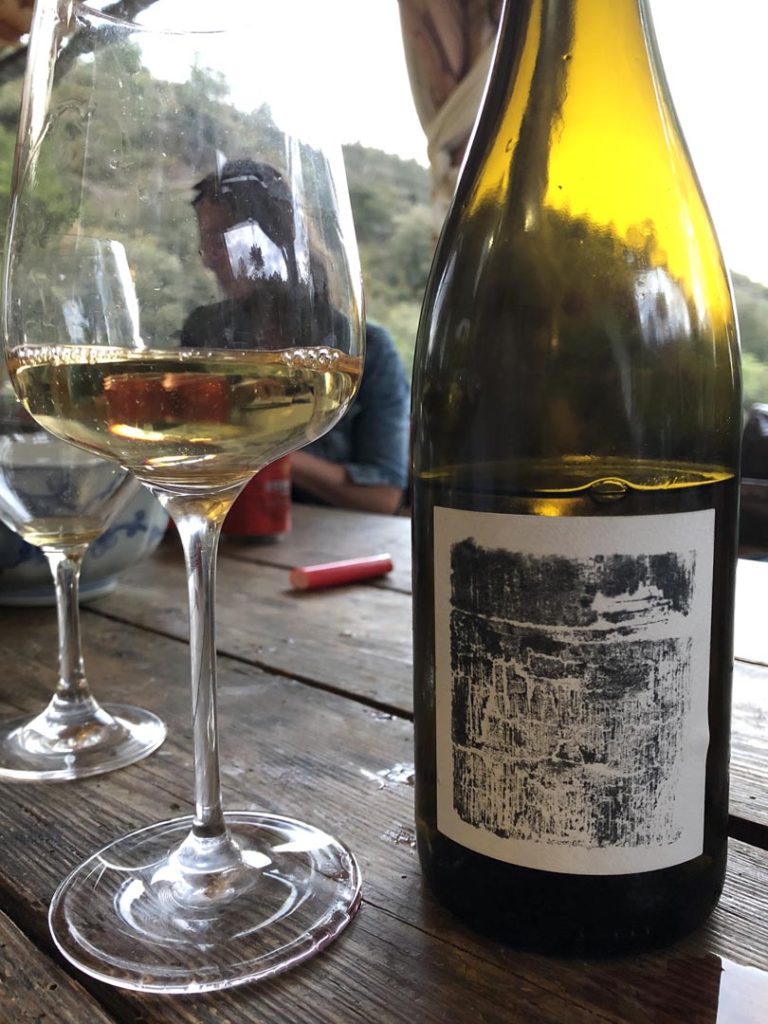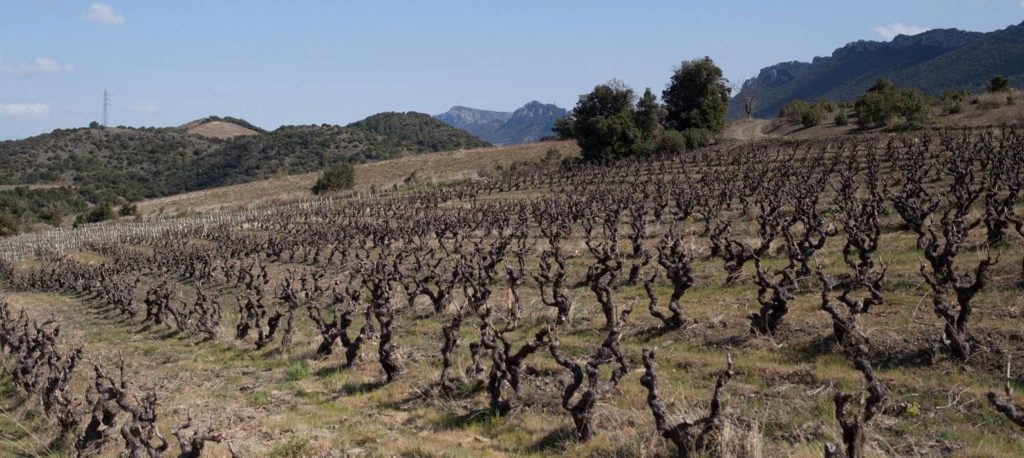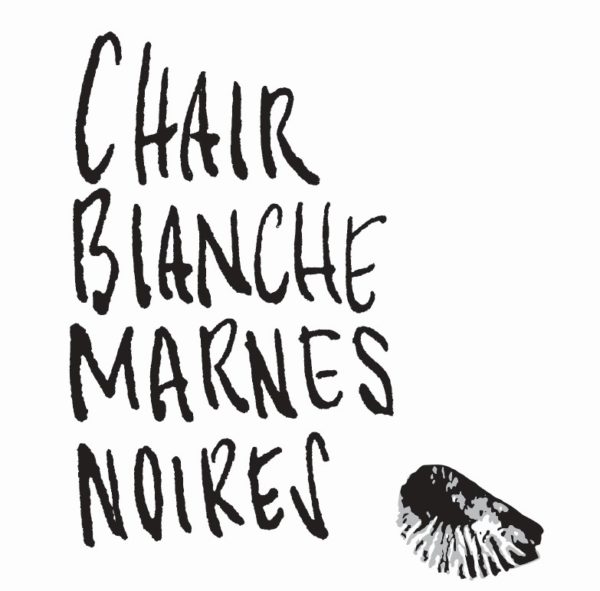La Bancale
Transplants from Northern France, Bastien and Céline met as teenagers. Both lovers of nature and of working with their hands, they moved to the Languedoc in their early twenties to study and work in agriculture. Bastien studied viticulture in Montpellier and they both worked at Domaines throughout the Languedoc and the Roussillon. Early on they developed a passion for the native varieties and old bush vine vineyards of Southern France. It was their love of old vine Carignan that led to apprenticeships with Jean-Louis Tribouley and Domaine de l’Ausseil, in the village of Latour-de-France at the eastern end of the Agly Valley. Struck by the incredibly complex terroirs and cooler climate of the Fenouillèdes, Bastien and Céline saw an ideal place to craft balanced, terroir expressive wines from native grape varieties. They set out to find vineyards of their own and in 2014 purchased just over 1 hectare of old vines.
Bastien and Céline have methodically added small plots of old vines over the past five years and today they farm a little under 5 hectares, spread over multiple parcels in 5 different communes. Nearly all their vineyards are planted to native, 70 plus year old, head trained bush vines. The three exceptions are a little Syrah that is trellised, two plots of Macabeu planted in 1980 and some younger vine Grenache Gris. All vineyards are farmed according to Organic principles, and the Domaine is in the conversion process for Organic certification (ECOCERT). Other than some light tilling by tractor, all work in the vineyards is done by hand. The soils are predominately decomposed granite or black schist and marl. Several of the parcels are co-planted to multiple red and white varieties. Particularly interesting, is an 80-year-old, .20-hectare vineyard planted to Carignan Noir, Grenache Gris, Macabeu, Carignan Gris and Tourbat that is harvested together, co-fermented and bottled as a single vineyard.
The focus at La Bancale is expressing the Domaine’s unique terroirs, and the quality of the Roussillon’s indigenous grape varieties. Bastien and Céline feel this is best accomplished by making wine as naturally as possible, meaning meticulous organic farming and a hands-off approach in the cellar. Apart from minimal sulfur additions, less than 30ppm, there are no enological additions to the wines. Wine making here is about as low tech as it gets, with everything from pump overs (by bucket) to bottling done completely by hand. New oak is not used. Vinification and maturation are in stainless-steel tanks or used French oak barrels. Bastien has become very adept at utilizing co-fermentation, and the technique is employed on both whites and reds.
While still quite young, Bastien and Céline show great promise. They have already produced several excellent vintages and demonstrate a level of understanding rare for such young vignerons. When asked about his philosophy and ideas on being a vigneron Bastien has this to say,“I just really like being a peasant, it’s a hard job but a great job! I like to prune the vines, to care for the vines, to plough the vines, to harvest the vines…the vines are a good place for me.”
Wines
‘Baton’ Rouge
Varietal: Carignan Noir, Grenache Gris
Color: Red
Farming Practice: Organic
Organic. Single vineyard field blend of 50% Carignan Noir, 30% Grenache Gris and 20% of various white grapes that includes Macabeu, Carignan Gris and Tourbat. The vineyard was planted in 1937 (vine age 81 years old) and is situated at 1475 feet above the sea level on granite soils. All grapes are harvested together and co-fermented whole cluster in large neutral vats. Alcoholic fermentation begins naturally using only the naturally occurring indigenous yeasts and lasts 8-20 days depending on the vintage. To avoid over extraction from daily pump overs, a bucket is used to transfer juice from the bottom of the vat to the top. 1-2 days before devating a single punch down (pigeage) is done by foot. The entire volume is transferred to stainless tanks for aging. After the completion of malolactic fermentation, a very low dose of sulfur is added. Aged 6 months in stainless-steel tanks before bottling. The wines are bottled un-fined and unfiltered.
‘Chair Blanche Marnes Noires’ Blanc
Varietal: Macabeu, Grenache Gris
Color: White
Farming Practice: Organic
Organic. 50% Macabeu and 50% Grenache Gris. 39 years old Macabeu and 13 years old Grenache Gris on calcareous black shale soils at 920 feet. The Grenache Gris and Macabeu were harvested on the morning of August 30th and blended at the press. The juice undergoes one-night of cold settling in stainless-steel tanks, then is racked off the heavy lees straight into large neutral vats for fermentation. Alcoholic fermentation begins naturally using only indigenous yeasts. No stirring of the fine lees and the wine goes through full malolactic fermentation. After the completion of malolactic fermentation, a very low dose of sulfur is added, and the wine is racked into neutral vats for ageing. Aged in neutral vats for 4 months. The wines are bottled un-fined and unfiltered.
‘Fleuve’ Blanc
Varietal: Macabeu, Grenache Gris
Color: White
Farming Practice: Organic
Organic. 70% Macabeu and 30% Grenache Gris. 39 years old Macabeu and 70+ years old Grenache Gris on calcareous black shale soils at 920 feet. The Macabeu and Grenache Gris were harvested on the morning of August 26th and blended at the press. The juice undergoes one-night of cold settling in stainless-steel tanks, then is racked off the heavy lees straight into large neutral vats for fermentation. Alcoholic fermentation begins naturally using only indigenous yeasts. No stirring of the fine lees and the wine goes through full malolactic fermentation. After the completion of malolactic fermentation, a very low dose of sulfur is added, and the wine is racked into used French oak barrels of multiple sizes. Aged 4 months in used French oak barrels; half in 5-year-old 228L François Frêres barrels and the other half in 3-year-old demi-muids from Atelier Center France. Prior to bottling the barrels are racked and blended into large neutral vats. Bottled unfined and unfiltered.
‘Fleuve’ Rouge
Varietal: Carignan, Grenache Noir
Color: Red
Farming Practice: Organic
Organic. 70% Carignan and 30% Grenache Noir. 60+ years old Carignan and 60+ years old Grenache Noir on calcareous black shale soils. The Grenache was harvested on September 2nd and the Carignan on September 6th. Each variety is whole cluster fermented separately in stainless steel tanks. The Grenache is pressed on the 8th day and the Carignan is pressed on the 7th day and transferred to large neutral vats to finish fermentation. Blended after fermentation is completed. Aged in large neutral vats for 6 months. Bottled unfined and unfiltered.








